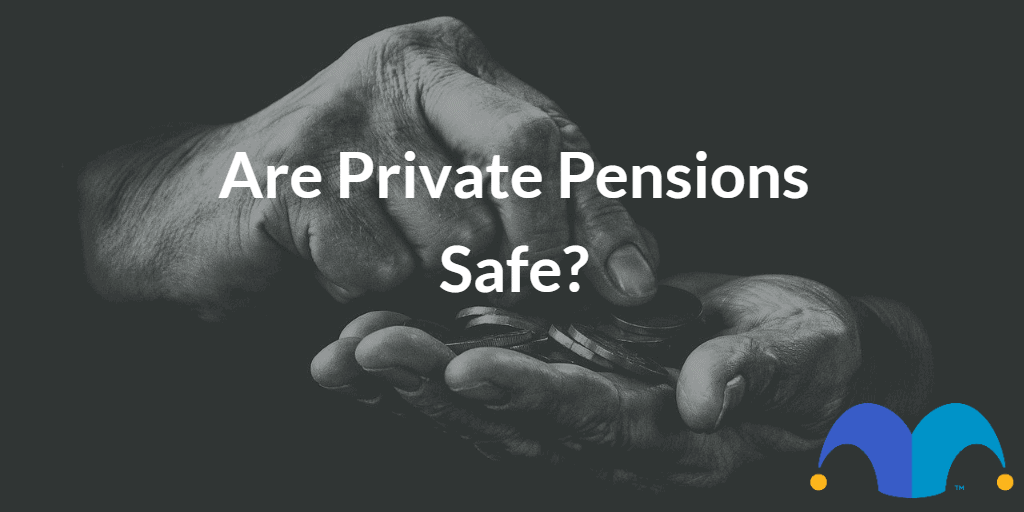Your pension pot is precious. It is the nest egg that means you can look forward to a comfortable retirement. But if you have a private pension, you may be worried that your savings are at risk. So just how safe are private pensions?
Private pensions: are they safe?
We all know that pension scams, pension fraud and falling stock markets can threaten our pension savings. So it’s good to know that they are protected.
There are safeguards in place to ensure that you won’t lose your entire pension fund if something were to happen. The Financial Services Compensation Scheme (FSCS) means that up to £85,000 is protected per person, per institute. So depending on the size of your pension fund, you should be reassured that in most cases, a sizeable sum is protected.
What pension protection is there?
It’s important to understand that your private pension is safe if you use a provider that has been authorised by the Financial Conduct Authority (FCA).
The FSCS has protection for different scenarios:
- Your private pension provider fails – the FSCS will cover 100% of your claim with no upper limit.
- Your self-invested personal pension operator fails – up to £85k per person, per institute, is protected.
- You receive bad pension advice – you can claim compensation up to £85k per eligible person, per firm.
The main thing to be aware of is that while the FSCS does offer protection, it doesn’t cover performance losses. So if the shares you invest in go bust, you can’t claim compensation. But if you think there has been poor investment management, then you could have a claim.
What do we mean by private pension?
Most people are automatically enrolled into a workplace pension scheme.
But if you are self-employed, then it’s up to you to start a pension. While you will have access to the State Pension, this isn’t enough to achieve a comfortable standard of living.
There are also benefits that come with setting up your own pension. You receive a 25% tax top-up from the government and if you die before 75, your pension can usually be passed on to your beneficiaries without inheritance tax deductions.
There is no ‘best’ option for self-employed workers. It’s just what fits best with your personal circumstances:
- Personal pension – This is a pension you set up yourself with a pension provider. You will be given a choice of pension funds and these will be handled by professional money managers. Once you have set up a private pension you can either make regular contributions or one-off payments.
- SIPP – This is a type of defined contribution personal pension that lets you choose how your savings are invested. You can either manage your own investments or appoint a money manager to make investment decisions for you.
- Stakeholder pension – This is also a type of defined contribution scheme. It is specifically designed to be accessible to everyone. It is arranged by a contract between an individual and their pension provider. Other individuals, such as a spouse or a partner, can also contribute to your stakeholder pension.
Take home
Whichever type you opt for, you can rest assured that your private pension is safe. The FSCS is in place to protect against pension providers failing and leaving you high and dry.
However, that doesn’t mean that your pension pot is immune to market fluctuations. Any type of investment carries risk.
If you want to be steered in the right direction when it comes to retirement planning, then it could be worth consulting with an independent financial adviser. Unbiased.co.uk is an online directory that matches you to a financial adviser in your area. Initial fact-finding meetings are typically free, and after that, advisers usually work on a set fee or percentage basis.
